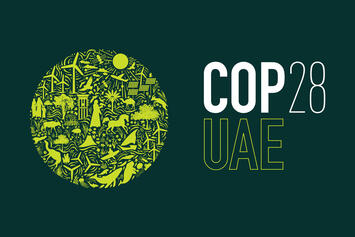
The UN’s COP28 climate conference has always been more political than scientific. But now more than ever, the green agenda looks to be in jeopardy.
Whatever you may read in the establishment press, the world is turning away from draconian climate policies. Already developing countries are increasingly open about expanding the use of fossil fuels. Indeed, the two rising world powers, China and India, as well as wannabes like Iran and Russia, all plan to burn more fossil fuels, including coal in the coming years.
This has occurred even though climate extremism has been adopted almost universally by most established institutions, promoted by Wall Street, and feverishly pushed by a compliant media. Yet on the ground level, the Western middle and working classes seem less than enthusiastic about an agenda that seems determined to lower their standard of living for the coming decades.
In green hotbeds such as Germany and California, much of the population already suffers high rates of “energy poverty”. Citizens are being told to limit the size of homes, reduce meat consumption, consume insects instead of meat as well as stop using air travel and cars. Even green zealots like Bill Gates are warning that austerity makes the climate agenda a difficult sell.
The dynamics of climate policies are weakening the West while also handing the economic future to China and its assorted allies. The Middle Kingdom already enjoys a market share of manufacturing exports roughly equal to the US, Germany and Japan combined; American manufacturing meanwhile has recently dropped to its lowest point since the pandemic — made worse by the West’s massive green regulatory onslaughts.
China, which already emits more greenhouse gases than the rest of the high-income world, is primed to be the main beneficiary of the forced march to electric vehicles. It dominates the solar, battery and EV markets, with its coal-dependent industry producing cars roughly half as expensive as its Western competitors. Maybe in the future, the UN should ask China to pay the bill for these worthless events.
So rather than focus on events in Dubai — that paean to oil-fired excess — environmental warriors would do better to focus on what is happening in their own neighbourhoods. The rebellion that started with the French gilets jaunes in 2018 has metastasised and spread to other countries. We now have protests by Dutch and other European farmers, as well as those in New Zealand. In the rural US there’s a stunning rejection of “green energy” projects.
Even on the Left, the spectre of job losses in factories is forcing a reassessment of green policies. Recent gains on the much detested “far-Right” in the normally placid Sweden, Netherlands and Germany represent a stark warning.
The fundamental reality is that the majority of voters do not share the convictions of their betters. In the United States, just 1% of blue collar workers consider climate a major concern. The Biden Administration expends hundreds of billions in taxpayer funds to “green projects” but average Americans don’t want to spend more than $2.50 a week to combat it.
These grassroots trends will likely be overlooked in Dubai. But ultimately the political reality, both in the West and the developing world, cannot be ignored forever. Environmentalists need to focus more on how to adjust to environmental challenges without turning popular aspirations into the latest endangered species.
This piece first appeared at UnHerd.
Joel Kotkin is the author of The Coming of Neo-Feudalism: A Warning to the Global Middle Class. He is the Roger Hobbs Presidential Fellow in Urban Futures at Chapman University and Executive Director for Urban Reform Institute. Learn more at joelkotkin.com and follow him on Twitter @joelkotkin.
Graphic: U.S. Department of State in Public Domain












